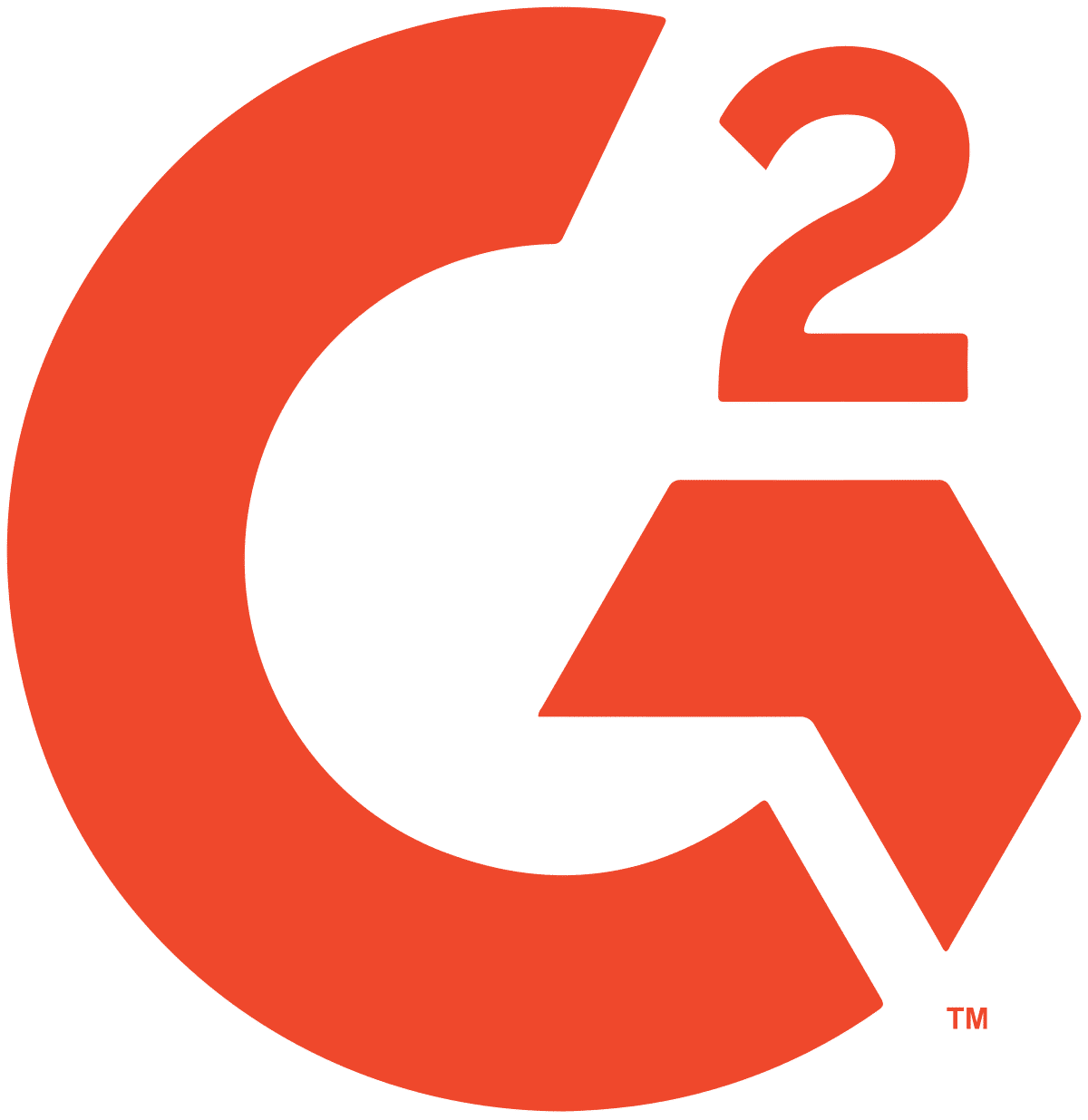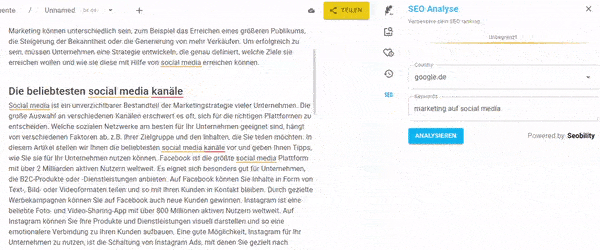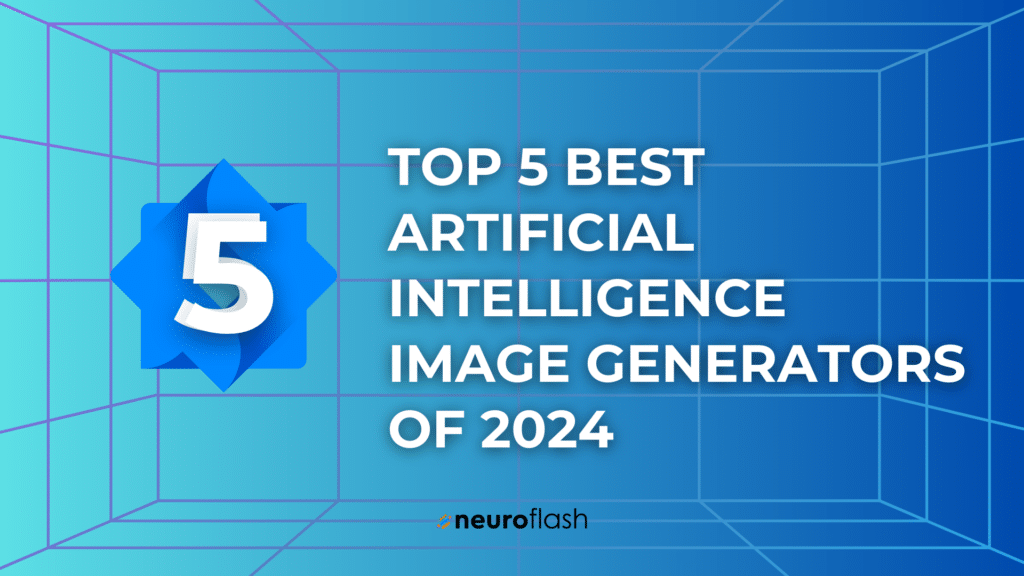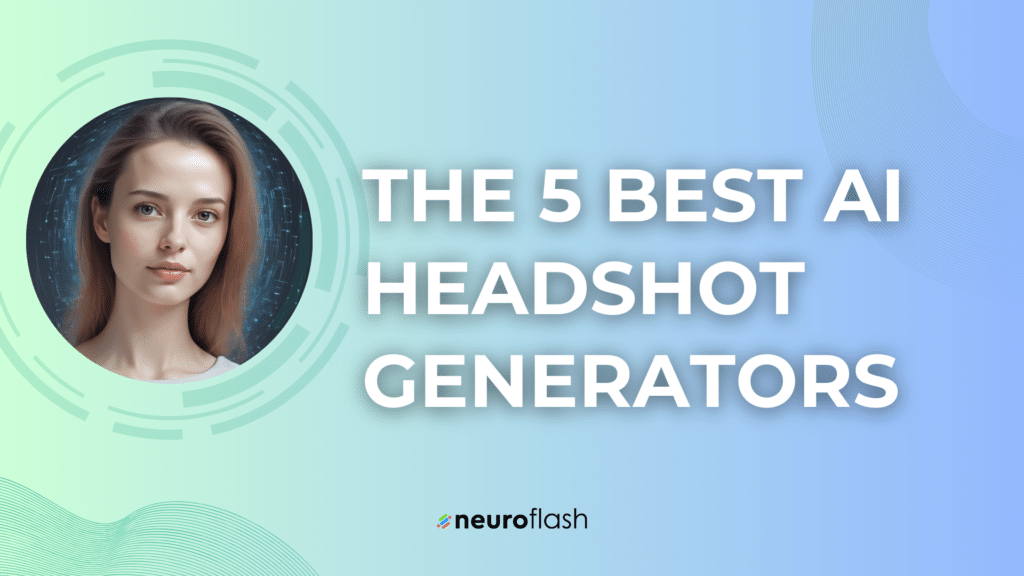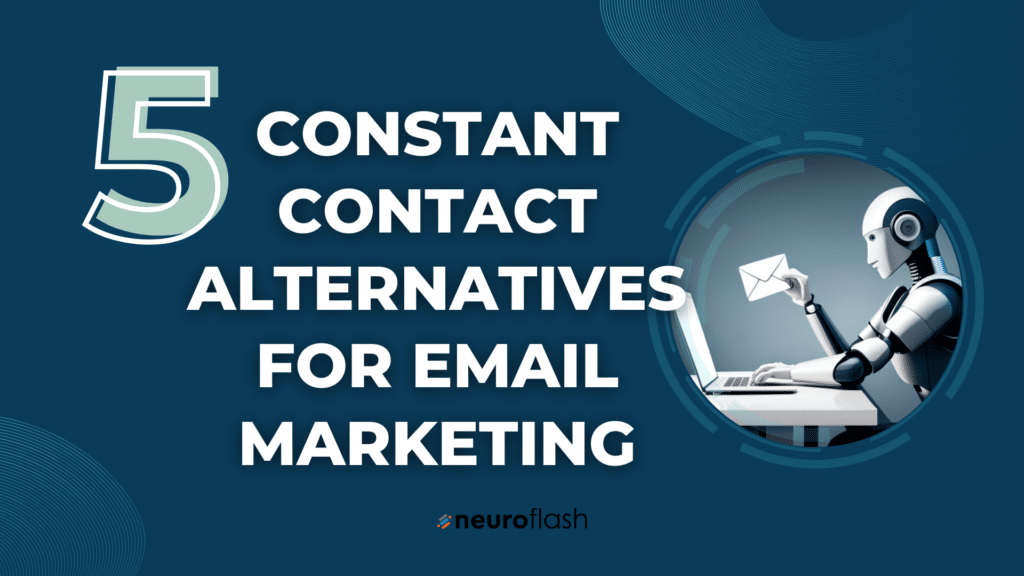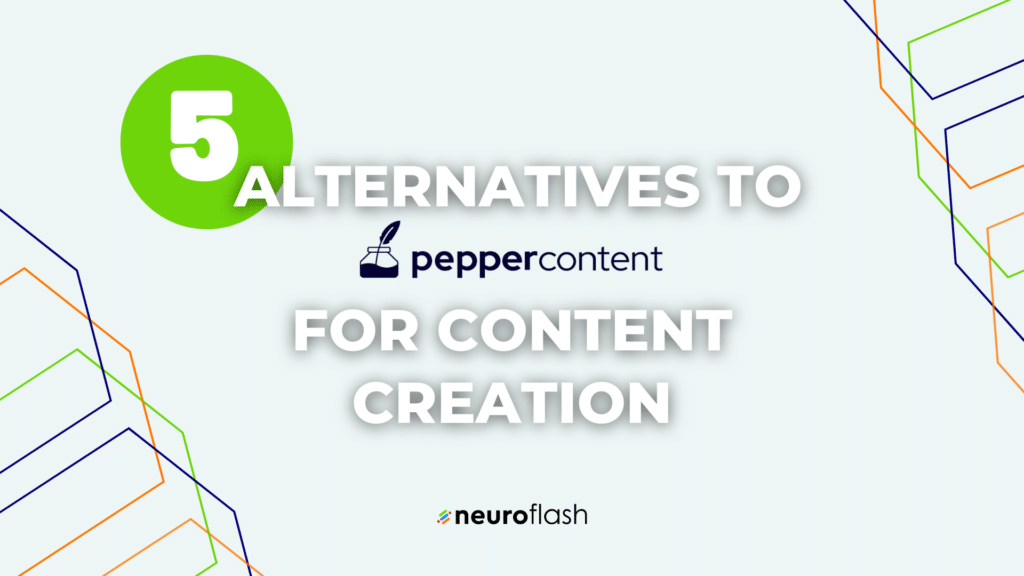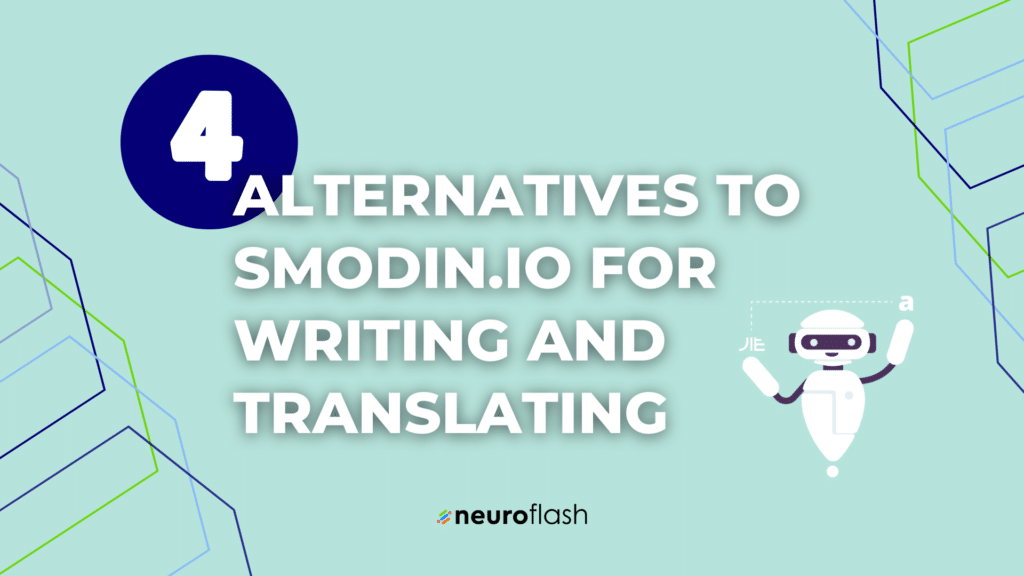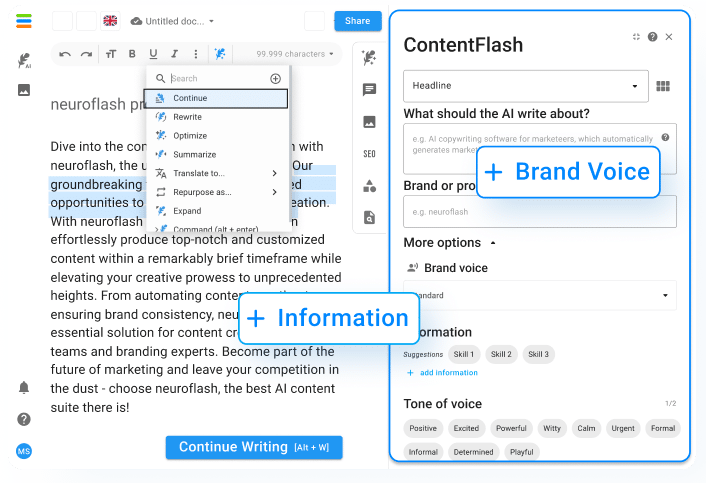Online marketing is an important aspect for any business that wants to succeed in the 21st century. But which digital marketing channels should you use to drive your business forward? In this blog post, we’ll look at the different options and discuss which ones are best for you.
Introduction to digital marketing channels
In recent years, the Internet has become a central part of our communication. This trend has also taken hold of the marketing industry and thus digital marketing channels have emerged. This involves the use of digital media to make contact with customers and prospects and get them excited about products or services. Meanwhile, there are many different ways to advertise on the Internet. The right choice depends on various factors, such as the product or the industry.
Key digital marketing channels include:
1. search engine marketing
Search engine marketing deals with the optimization of websites for search engines. To be successful in the field of search engine marketing, websites must be optimized accordingly. This includes, among other things, choosing the right keywords that users might use to search for a website. The design of the website also plays a role. For example, relevant keywords should be used in the titles and meta tags.
Fortunately, there are some tools that can help you create search engine optimized content. This includes, for example, the AI text generator neuroflash. Thanks to artificial intelligence, it allows you to create appealing texts for your website in a short time. To do this, you have to pass on your wishes and ideas in the form of a briefing to the technology behind it, whereupon it will give you suitable suggestions for your theme, which you can use and combine as you please. After the text creation, you can check your result with the built-in SEO analysis and make appropriate improvements:
Neuroflash offers many free features to help you write SEO optimized content. Register here and start your own search engine marketing!
2. affiliate marketing
In this model, companies make products or services available to other website operators, who then advertise them. If a customer takes up the offer as a result of this advertisement, the website operator receives a commission.
3. email marketing
Email marketing involves sending emails to potential or existing customers to inform them about new offers or products or to retain existing clientele. It can be very useful for both B2C and B2B companies.
However, to be successful, it is important to develop a good strategy and design the emails to add value to the recipients. In addition, the emails should be sent regularly, but should not appear too frequently, otherwise there is a risk that the messages will be marked as spam.
4. content marketing
Content marketing is about creating and distributing valuable, relevant, and engaging content to attract and retain customers. Examples of content include blog posts, e-books, infographics, webinars, and more.
5. social media marketing
Social media marketing involves using social media platforms such as Facebook, Twitter, LinkedIn and Pinterest to build relationships with potential and existing customers. You can use it to drive traffic to your website, promote your content, or simply build relationships with customers.
6. paid advertising
Paid advertising is a form of online advertising where you pay for placement in search engine results pages (SERPs) or on social media platforms. It can be an effective way to reach potential customers, but requires a budget and a solid understanding of how it works.
If you want to recall the basics of digital marketing, you can read this article.
Advantages and disadvantages of the individual digital marketing channels
Search engine marketing
Advantages:
- SEO can be a great way to make sure your website is found by potential customers.
- SEO can also help increase your website’s click-through rate (CTR).
- Proper optimization of your website can help improve search engine rankings, driving more traffic to your site.
Disadvantages:
- SEO is a long-term process and the results cannot be seen immediately.
- SEO is complex and there are many different factors that need to be considered to be successful.
- If you don’t know what you’re doing, it can be easy to make mistakes that can reduce your traffic and worsen your rankings.
Affiliate marketing
Advantages:
- You can market products and services without much effort.
- The cost is relatively low and depends on your goals.
- It’s a performance-based advertising method, which means you only have to pay when you actually gain customers.
Disadvantages:
- Success depends heavily on the commitment of publishers. If they haven’t placed their promoted content properly or conveyed it to the right audience, it can turn out negatively for you.
- There is always a risk that publishers will post negative reviews about the advertised product or brand, which can have a negative impact on sales.
- Affiliate marketing works well only when enough traffic is generated on the publisher’s website. So if not enough people see the content in which the company is advertised, there is no point.
Email marketing
Advantages:
- Emails reach the recipients’ inbox directly.
- Email campaigns can be highly personalized.
- You have full control over the content and sending time of your messages.
- It is relatively inexpensive.
- With email marketing, you can easily measure how successful your campaigns are.
Disadvantages:
- Competition in the Inbox is fierce, which means your messages may not get read.
- There is a risk that your emails will be marked as spam.
- You need a large email list to be successful.
- It can be difficult to get the recipient’s attention and get them to open and read your messages.
Content Marketing
Advantages:
- Content marketing can help drive traffic to your website.
- It can help you portray your company as an expert in your industry.
- It can help generate leads.
- It helps you build a closer relationship with your customers.
Disadvantages:
- You need time and patience. It may take a while before you see results.
- It can be expensive to hire professional help to create quality content.
- If you don’t publish content regularly, it can be difficult to drive traffic to your website.
Social Media Marketing
Advantages:
- Social media is a great way to stay in touch with your customers and build a relationship.
- You can search specifically for people who are interested in your product or service.
- With the right tools, you can find out what’s being said about you and your business online – and respond to negative comments or spread positive mentions.
Disadvantages:
- It takes time and commitment to create and maintain a good presence on social media channels.
- The algorithms of the various providers (Facebook, Instagram, etc.) are constantly changing – which means that you always have to be up to date so that your content is highly visible.
- There is always a risk of negativity or haters.
Paid advertising
Advantages:
- Paid advertising is a quick and effective way to get your brand noticed.
- You can search specifically for customers who are interested in your products or services.
- Paid advertising is measurable and you can see exactly how many people saw your ad and how many of them were redirected to your website.
Disadvantages:
- Paid advertising can be expensive and you need to make sure you have enough budget to launch a successful campaign.
- It is not always the best solution for all companies. For example, if you’re only active in a certain region, it might be difficult to keep up with competitors who operate nationally or even internationally.
- Paid advertising can be a risk, as you never know for sure whether your campaign will be successful or not. There is no guarantee that you will get the results you want with your campaign or get your budget back.
Why is it important to choose the right channels?
You can’t use all digital marketing channels equally and be successful. Instead, you need to focus on those that best fit your audience and goals. If you try to be present on all channels at the same time, you will quickly run out of capacity and resources. It is therefore important to think carefully in advance about which are really relevant to the company and which have the greatest chance of achieving the desired results.
How to choose the right digital marketing channels for your business
The first question you should ask yourself is: What goal do I want to achieve? Want to increase your visibility? Want to drive more traffic to your website? Or do you want to increase your sales? Once you know what goal you want to achieve, you can choose the marketing channels that are best suited for it. For example, if you want to drive more traffic to your website, search engine optimization (SEO) and content marketing are good options for you. However, if you want to generate more revenue, email marketing and paid advertising might be a better fit.
In addition, you should also consider what marketing channels your competitors are using. Look at what kind of content they share and what kinds of ads they run. This will give you a good idea of what options might be relevant to you. Of course, you shouldn’t just copy everything your competitors do. Instead, you should try to go one step further and try something new.
Last but not least, you should keep in mind that not all marketing channels are suitable for all businesses. It’s important to test the different options and find out which ones work best for you. This can take some time, but it’s usually worth it as you’ll find those that best fit your business and deliver good results.
Here you will be told through which specific channel might be the best for you depending on your business goal.
Which digital marketing channels is my target audience on?
If you want to find out which digital marketing channels your target audience is on, you should start by asking some questions. First of all, you need to know where this is online. Is she primarily active on social media like Facebook or Twitter? Or is she more likely to visit news websites and blogs? Then you can decide what you want to focus on the most. Another question you should ask yourself is what kind of content your target audience consumes online. Once you know what they’re looking for and reading online, you can decide what kind of content to publish on which channels. For example, if you know that potential customers are looking for photos of interesting places especially on Instagram, you can post photos of the places you visit there. This way, you can make sure your content is interesting and relevant to your target audience.
Find out how to find new digital marketing channels and which ones could become increasingly important in the coming years here.
The most common channel selection mistakes
The most common mistakes you can make when choosing your digital marketing channels are:
- You choose a channel because it’s the latest trend, without considering whether it really fits your business and goals.
- You put all your eggs in one basket and invest all your resources in a single channel. However, this can prove to be very costly in the event of failure.
- You neglect a channel because you think it’s not relevant. This could be exactly the one that suits you best.
- You’re trying to be present everywhere at once instead of focusing on what has the most potential. This usually results in scattered resources and no significant results.
- You don’t know how to deal with each channel. Many companies invest in a channel without knowing what steps they need to take to be successful. The result is a waste of time and money.
Tips for the successful implementation of your digital marketing strategy
Whether it’s a small business or a large corporation, every marketer knows that nothing works these days without a functioning digital marketing strategy. That’s why we’ve put together a list of the most important tips you can use to successfully achieve your digital marketing goals:
Define the right goals:
The nuts and bolts of creating a digital marketing strategy is defining the right goals. Because only if you know what you want to achieve, you can also use the appropriate means and measures.
Measure digital metrics:
To measure your success, it’s important to set the right metrics and monitor them regularly. The most relevant metrics for digital marketing are website traffic, social media engagement and conversion rate.
Plan your budget:
No matter what means and measures you ultimately use, you can’t do it without a budget. And this is especially true for larger campaigns or the use of paid ads. After all, you don’t want to run out of budget in no time and have to abandon the campaign. So plan your budget carefully and consider exactly how much you want to invest.
Frequently asked questions & answers
What is digital marketing?
Digital marketing refers to the marketing of products or services via digital channels.
What are the digital marketing channels?
Email marketing, search engine marketing, content marketing, affiliate marketing, social media marketing, mobile marketing
What are the advantages of digital marketing?
Digital marketing enables companies to reach and engage potential customers. It also offers the opportunity to increase coverage and reduce costs.
Useful tips
-
Segment your target audience: what are their socio-demographic, psychographic and technological characteristics? This will help you identify the right channels for your message.
-
Identify your goals: What results do you want to achieve with your digital marketing campaign? Should it attract new customers, retain existing customers, or both?
-
Choose the right marketing channels: Which ones are best suited to reach your target audience and goals? You should weigh the pros and cons.
-
Plan your campaign: How will you structure your campaign on the different channels? What message do you want to communicate and in what order?
-
Implement and track: Implement your plan and track the results. This way you can see which channels are working and adjust or add new ones accordingly.
Digital marketing is an incredibly important tool to help businesses of all sizes promote and market themselves online. However, it is also a very complex field, and there is no single strategy that works equally for everyone. Instead, you need to carefully select the different digital marketing channels to find the ones that best fit your audience and goals.


